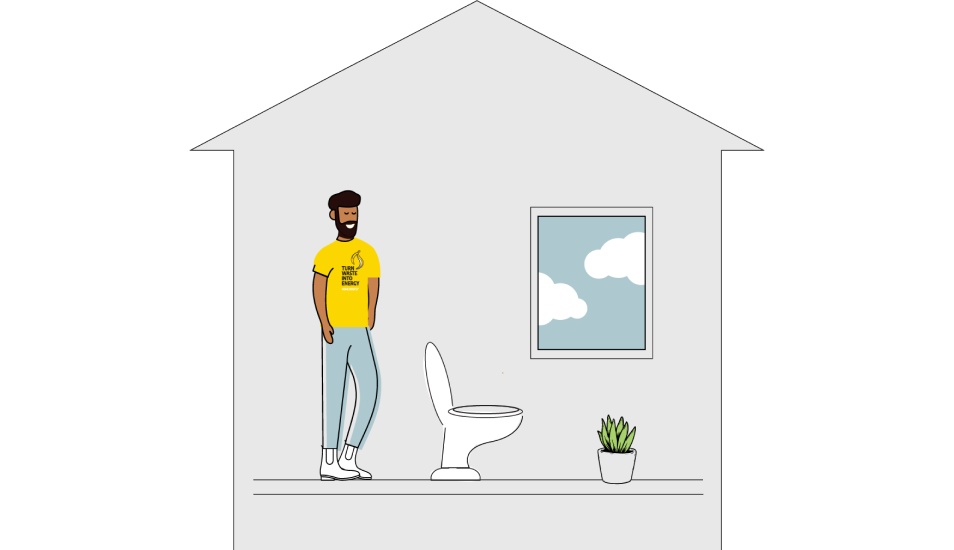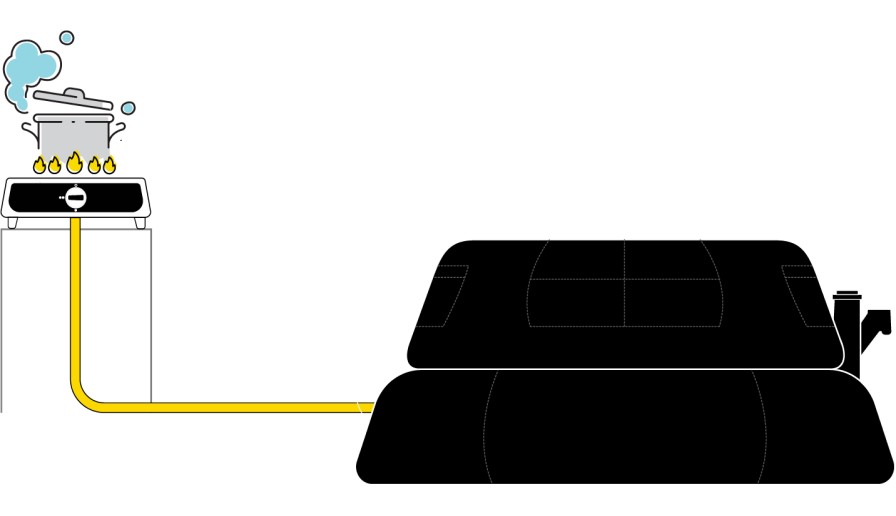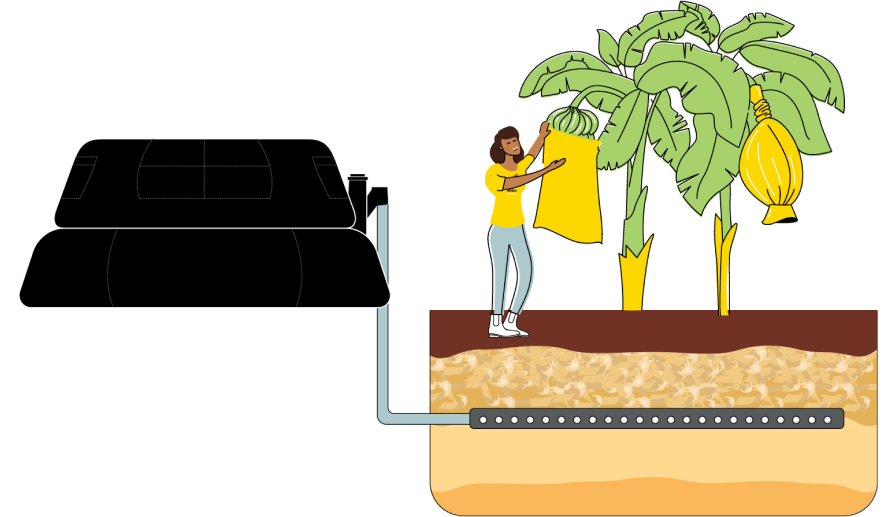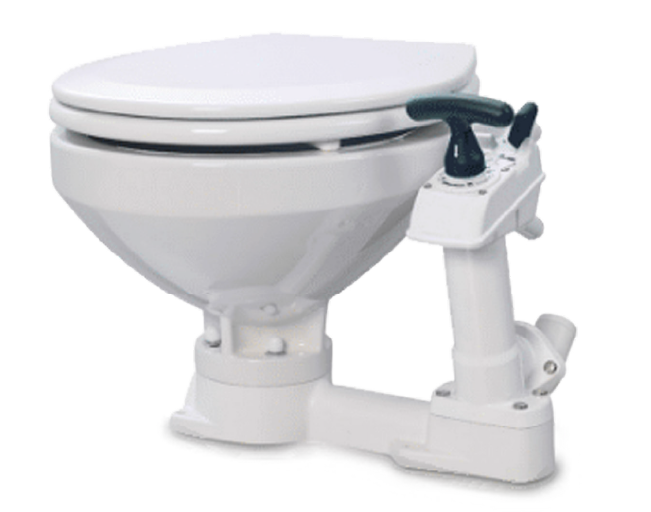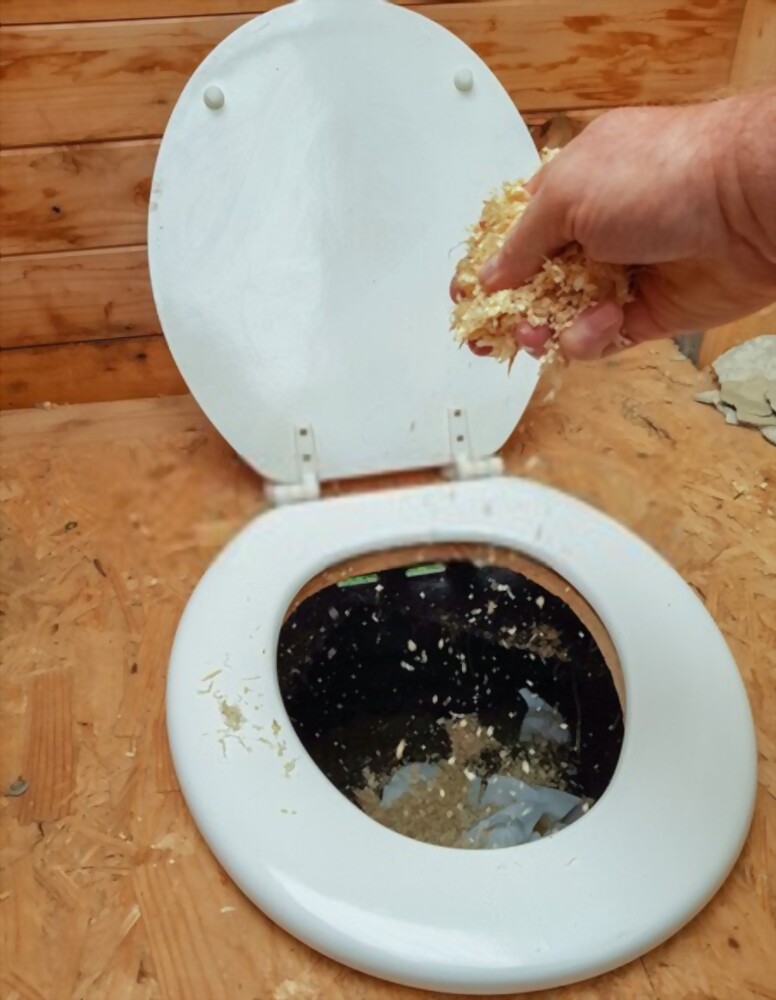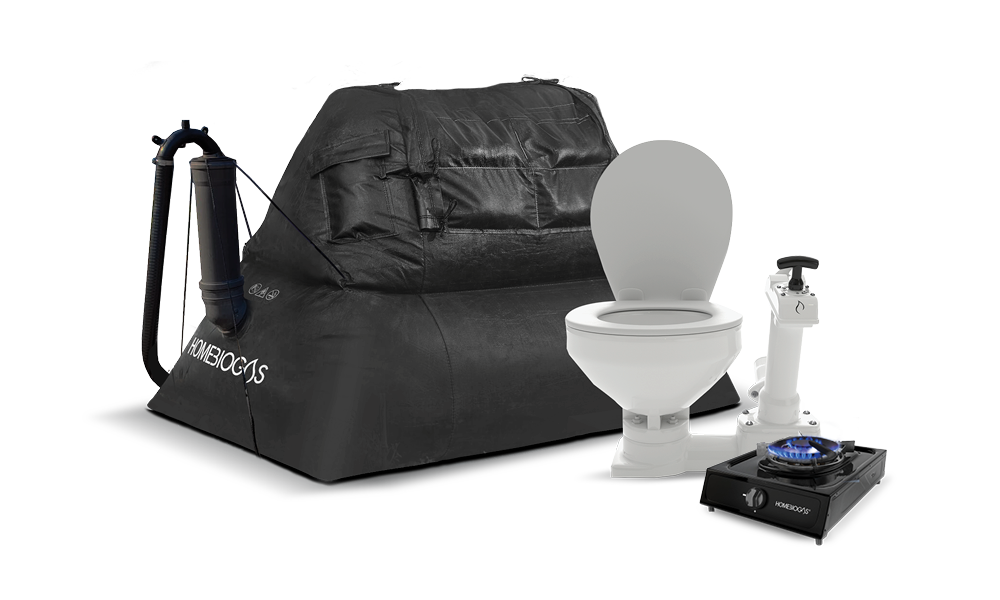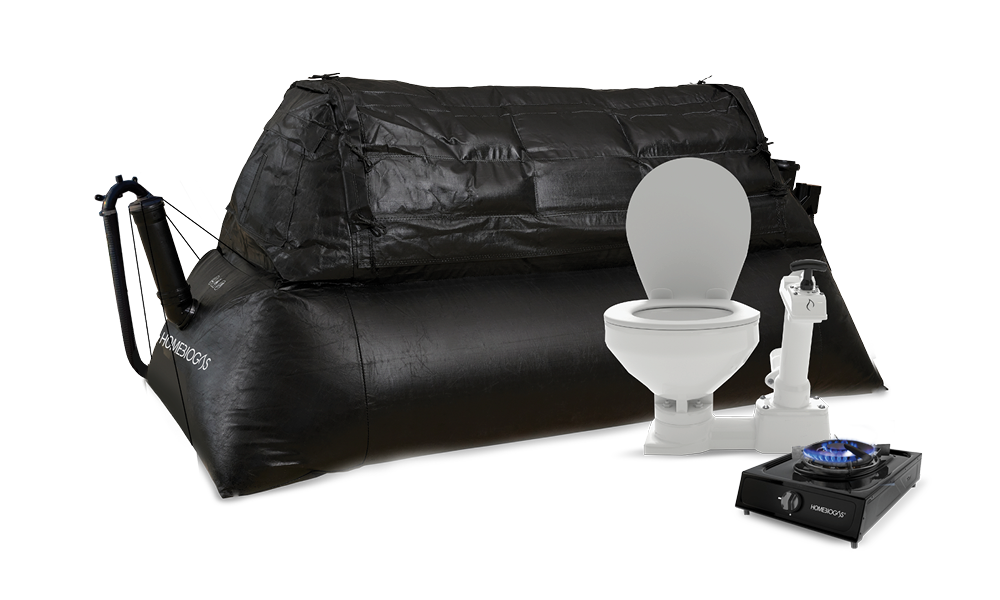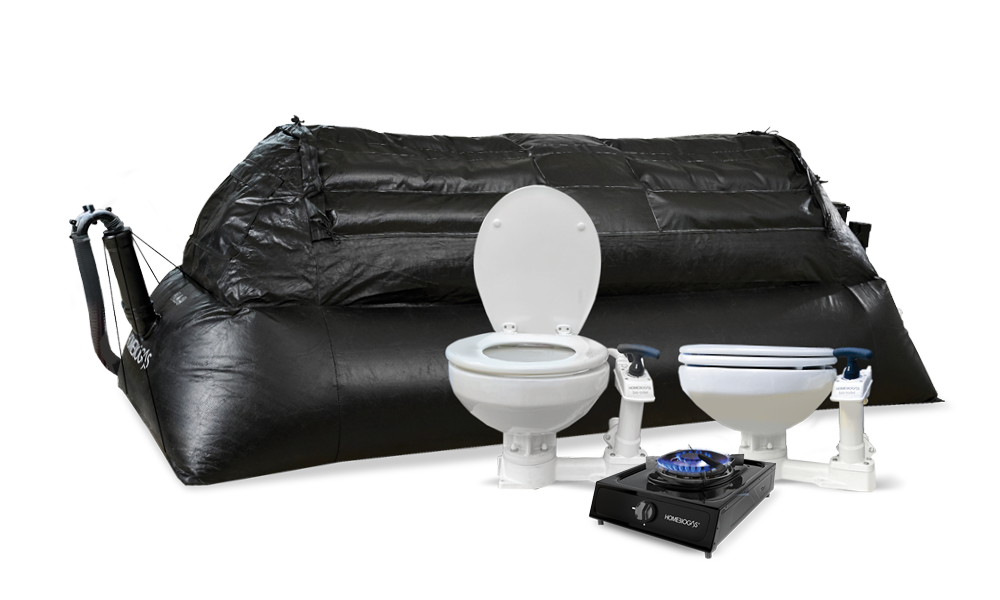The HomeBiogas Bio-Toilet is a superior alternative to regular compost toilets. It frees you to live in a self-sustainable manner by turning your pollutant body waste into a valuable resource. Using an anaerobic system, it decomposes waste and transforms it into renewable biogas for cooking. The Bio-Toilet is easy to install, safe, hassle-free, non-pollutant, environmentally friendly, and completes a full eco-cycle in your own home with no need for outside resources.
The Bio-Toilet kit comes with all the pipes that you need to connect the toilet to the HomeBiogas system, as well as detailed instructions for assembly and attachment. You can purchase one along with the purchase of your system or you can purchase one separately and attach it to your working system later.
Important to know:
- Dimensions of the Bio-Toilet sitting bowl: 46W/49L/35H (cm) / 18W/19.3L/13.5H in, weighs 12.5 kg.
- Bio-Toilet cannot be fed with toilet paper.
- Distance from the system:
– If the toilet bowl and the HomeBiogas system are at the same height: up to 5 meters.
– If there is a 1-meter difference between the toilet bowl and the HomeBiogas system: up to 10 meters.

